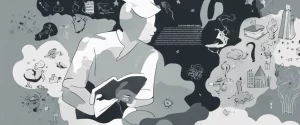——The Boy Who Was Raised as a Dog by Bruce D. Perry & The Gaslight Effect by Robin Stern
In the realm of psychology and personal development, the examination of human behavior and its underlying causes has always been a subject of great importance. Two books that delve into this area with astounding depth and clarity are “The Boy Who Was Raised as a Dog” by Bruce D. Perry and “The Gaslight Effect” by Robin Stern. Both works provide unique perspectives on the impact of adverse experiences and their resultant effects on individuals. While exploring different aspects of the human psyche, these books share the ultimate goal of shedding light on the intricacies of trauma, abuse, and manipulation. By comparing and contrasting the insights offered in these two transformative works, we can gain a deeper understanding of the long-lasting ramifications of such experiences and the potential for healing and growth.
Firstly, in “The Boy Who Was Raised as a Dog,” renowned psychiatrist Dr. Bruce D. Perry presents a collection of captivating case studies that highlight the profound effects of early childhood trauma. Drawing upon his extensive experience working with traumatized children, including those who endured neglect, abuse, or witnessed violence, Perry offers a compelling narrative that illuminates the complexity of the human brain and its response to severe stress. By diving into in-depth analyses of the brain’s development and the interplay between biology and environment, Perry crafts a powerful argument for the crucial role of relationships in healing traumatic wounds. His poignant stories, rooted in both scientific research and personal interaction, invite readers to reevaluate their understanding of trauma and embrace compassion as a cornerstone for rebuilding lives shattered by adverse experiences.
In contrast, Robin Stern’s “The Gaslight Effect” provides a thought-provoking exploration of emotional manipulation and its detrimental impact on individuals’ mental well-being. Derived from the infamous term “gaslighting,” which refers to a form of psychological manipulation used to undermine someone’s reality, Stern examines how gaslighting can be employed in relationships, workplaces, and even societal structures. Through relatable anecdotes and expert analysis, she delves into the various ways in which gaslighting can erode self-esteem, fuel self-doubt, and perpetuate a cycle of psychological abuse. Stern’s work serves as a wakeup call, urging readers to recognize the subtle signs of gaslighting and empowers them with practical strategies to break free from its suffocating grip.
While Perry’s “The Boy Who Was Raised as a Dog” focuses on the impact of traumatic experiences in early life, Stern’s “The Gaslight Effect” delves into manipulative techniques employed by individuals throughout various stages of life. Both books illuminate the long-lasting psychological consequences of adverse experiences, whether due to early childhood trauma or ongoing emotional manipulation. By examining these two works side by side, we can thoroughly explore the intersecting themes of trauma, abuse, and manipulation, and gain insight into the resilience and healing potential within each individual.
In this comparative study, we will critically analyze the distinctive insights offered by “The Boy Who Was Raised as a Dog” and “The Gaslight Effect.” By exploring the similarities and differences between these two fascinating works, we aim to deepen our understanding of the transformative experiences highlighted in these books and consider the implications for both individuals and society as a whole.
Brief Summary of Two Books
The Boy Who Was Raised as a Dog by Bruce D. Perry
“The Boy Who Was Raised as a Dog” is a book by Bruce D. Perry, a renowned child psychiatrist. In this captivating book, Perry shares his experiences and observations from his years of working with deeply traumatized children.
The book begins with an account of Perry’s encounters with various children who have suffered severe trauma, including abuse, neglect, and violence. He explores how these early traumatic experiences shape the developing brain and subsequently affect a child’s behavior and emotional well-being.
Using vivid case studies, Perry delves into the science of early childhood development and explains how trauma impacts the brain’s architecture. He examines the profound consequences of neglect and abuse on a child’s ability to form attachments, regulate emotions, and navigate relationships. Throughout the book, Perry stresses the importance of compassionate care and understanding in healing the wounds of trauma.
Perry also highlights the resilience and potential for recovery in traumatized children. He shares heartwarming stories of successful interventions and therapies that have facilitated healing and growth in damaged children. Through these stories, he demonstrates the significance of patient, tailored approaches to therapeutic interventions.
Ultimately, “The Boy Who Was Raised as a Dog” provides readers with a deeper understanding of the lasting impact of childhood trauma and the potential for healing through empathetic and informed interventions. It serves as a powerful reminder of the importance of nurturing relationships and compassionate care for the well-being of children who have experienced trauma.
The Gaslight Effect by Robin Stern
The Gaslight Effect” by Robin Stern is a psychological self-help book that explores the notion of gaslighting, a form of emotional manipulation that distorts a person’s perception of reality. Gaslighting tactics are used by individuals to make others doubt their own feelings, thoughts, and judgments. The book delves into the impact of gaslighting on the victim’s mental and emotional well-being, relationships, and overall sense of self. It provides readers with practical strategies and techniques to recognize, confront, and overcome gaslighting in personal and professional relationships. Robin Stern combines research, real-life examples, and therapeutic insights to empower readers to reclaim their truth and live authentically.
Comparison between Two Books

Similarities in Psychological Healing
“The Boy Who Was Raised as a Dog” by Bruce D. Perry and “The Gaslight Effect” by Robin Stern share some similarities in their exploration of psychological healing. Both books shed light on the impact of early childhood experiences and trauma on the development of mental well-being. Here are some key similarities:
1. Understanding the role of early experiences: Both books emphasize the critical role of early childhood experiences in shaping one’s psychological well-being. They show how experiences during this crucial developmental period can have profound, long-lasting effects on individuals.
2. Trauma’s impact on the brain: Both books delve into the impact of trauma on the developing brain. They highlight how severe or prolonged trauma can disrupt normal brain development, leading to various psychological and emotional challenges later in life.
3. The importance of empathy: Both authors stress the significance of empathy and compassionate understanding in the healing process. They argue that the presence of empathetic caregivers or therapists is essential for individuals to heal from their past traumas.
4. Identifying and confronting gaslighting: While “The Boy Who Was Raised as a Dog” primarily focuses on trauma, “The Gaslight Effect” centers on gaslighting, a form of psychological manipulation. Both books address the importance of recognizing and confronting these harmful behaviors, highlighting the healing power of validating and listening to one’s own experiences.
5. Resilience and hope: Each book shares inspiring stories of individuals who have overcome their past traumas and managed to heal and thrive. They both emphasize the resilience of the human spirit and offer hope to those who have experienced psychological wounds.
6. Integration of therapeutic approaches: Both books explore various therapeutic modalities that can aid in psychological healing. They highlight the importance of integrating approaches that address the emotional, psychological, and physiological aspects of trauma and gaslighting.
Overall, “The Boy Who Was Raised as a Dog” and “The Gaslight Effect” converge in their understanding of psychological healing as a transformative journey that necessitates acknowledging and confronting past traumas, cultivating empathy, and fostering resilience.
Divergences in Psychological Healing
The books “The Boy Who Was Raised as a Dog” by Bruce D. Perry and “The Gaslight Effect” by Robin Stern both delve into psychological healing, but they approach the subject matter from different angles and focus on different aspects of it. While both books explore the impact of past traumas on mental health, they diverge in terms of their focus on personal stories, the type of healing they emphasize, and the target audience they intend to reach.
In “The Boy Who Was Raised as a Dog,” Bruce D. Perry, a renowned child psychiatrist, shares powerful case studies and personal anecdotes to illustrate the effects of early childhood trauma. The book primarily focuses on understanding the neurobiological impact of severe childhood experiences, such as neglect, abuse, or witnessing violence. Perry emphasizes the importance of neurodevelopment and how early traumatic events can shape brain development, resulting in long-lasting psychological and emotional consequences. By sharing these stories, Perry aims to broaden our understanding of trauma and offer insights into therapeutic interventions that can aid in the healing process.
On the other hand, “The Gaslight Effect” by Robin Stern centers around a different type of psychological trauma, specifically emotional abuse and manipulation in adult relationships. Stern explores the concept of gaslighting, which involves distorting or manipulating someone’s perception of reality, and the long-term effects it can have on their mental well-being. Her book aims to raise awareness about gaslighting behaviors, empower individuals to recognize them, and provide practical strategies to overcome the resulting psychological damage. Stern relies on real-life examples and emotional anecdotes to illustrate the gaslighting phenomenon and help readers navigate their way out of these toxic dynamics.
While both books focus on psychological healing, they differ in the type of trauma explored and their intended audience. “The Boy Who Was Raised as a Dog” primarily targets professionals in the mental health or child development field, as Perry’s language and in-depth neurobiological explanations may be more complex for the general public. The book appeals to those interested in understanding the scientific basis behind trauma and its impact on the developing brain, making it a valuable resource for clinicians, therapists, and researchers.
Conversely, “The Gaslight Effect” has a broader audience in mind, appealing to individuals who may have experienced emotional abuse or manipulation in their personal relationships. Stern’s book aims to raise awareness among the general public about gaslighting behaviors, offering tools for self-reflection, healing, and protection against further emotional harm. This book’s accessibility and relatable anecdotes make it suitable for anyone interested in understanding, recognizing, and recovering from emotional abuse.
In summary, while both “The Boy Who Was Raised as a Dog” and “The Gaslight Effect” focus on psychological healing, they approach the subject matter from different perspectives. Perry’s book casts light on the impacts of early childhood trauma and emphasizes neurodevelopmental aspects, primarily targeting mental health professionals. Stern’s book, on the other hand, explores emotional abuse and manipulation in adult relationships, providing the general public with practical strategies to recognize and heal from gaslighting behaviors. Understanding these differences allows readers to choose the text that aligns best with their interests and personal experiences.

Conclusion
Both “The Boy Who Was Raised as a Dog” by Bruce D. Perry and “The Gaslight Effect” by Robin Stern are highly regarded books that offer valuable insights into human behavior and psychological well-being. However, the choice between the two depends on individual preferences and interests.
“The Boy Who Was Raised as a Dog” is a compelling and eye-opening book that explores the effects of trauma on the developing brain. Bruce D. Perry, a renowned child psychiatrist, shares his experiences working with children who have experienced severe abuse and neglect. The book offers a unique perspective on the impact of early life experiences on mental health and provides valuable lessons for understanding trauma and promoting healing.
“The Gaslight Effect” by Robin Stern delves into the concept of gaslighting, a form of psychological manipulation aimed at making individuals doubt their own experiences and perceptions. The book provides valuable insights into gaslighting tactics, explores its impact on relationships, and offers strategies for recognizing and dealing with gaslighting behaviors.
Ultimately, the choice between the two books depends on your specific interest or goal. If you are interested in understanding trauma and its effects on the developing brain, “The Boy Who Was Raised as a Dog” would be an excellent choice. However, if you are more interested in understanding manipulation and psychological abuse, “The Gaslight Effect” would be an appropriate pick. Both books offer valuable insights and are worthy of reading, so consider your personal preferences and goals when making a decision.



